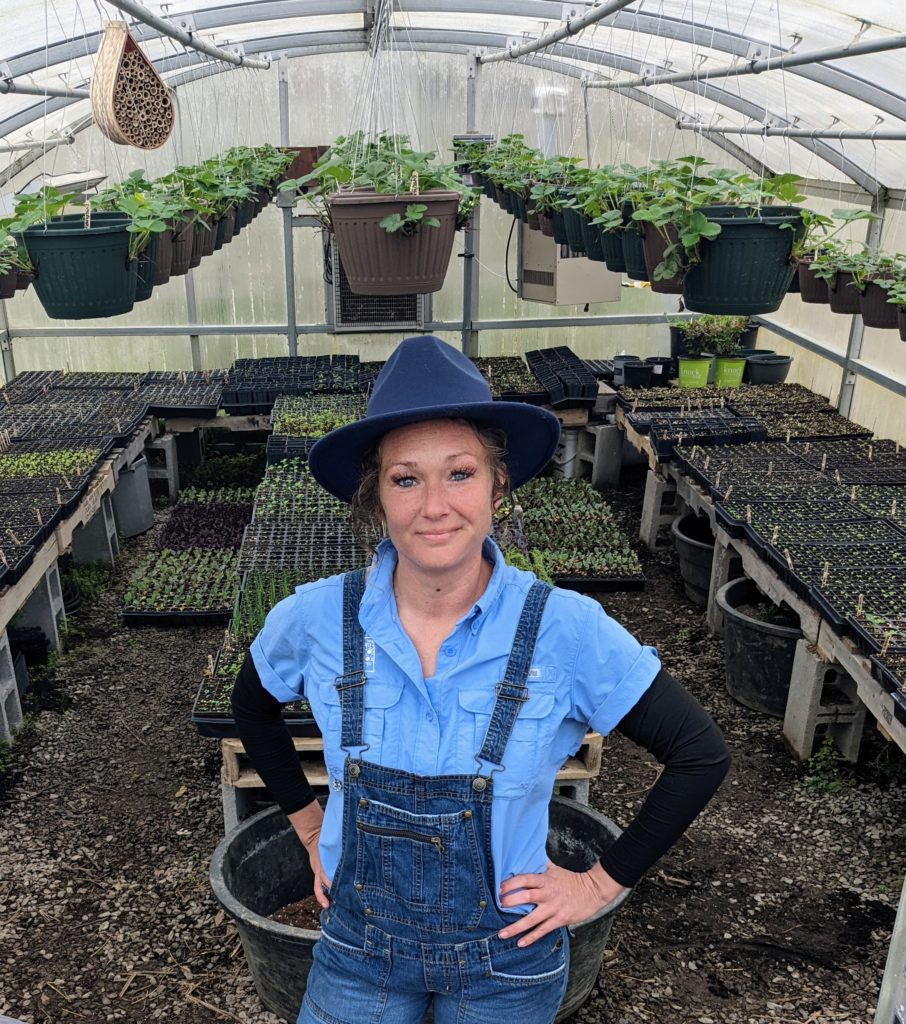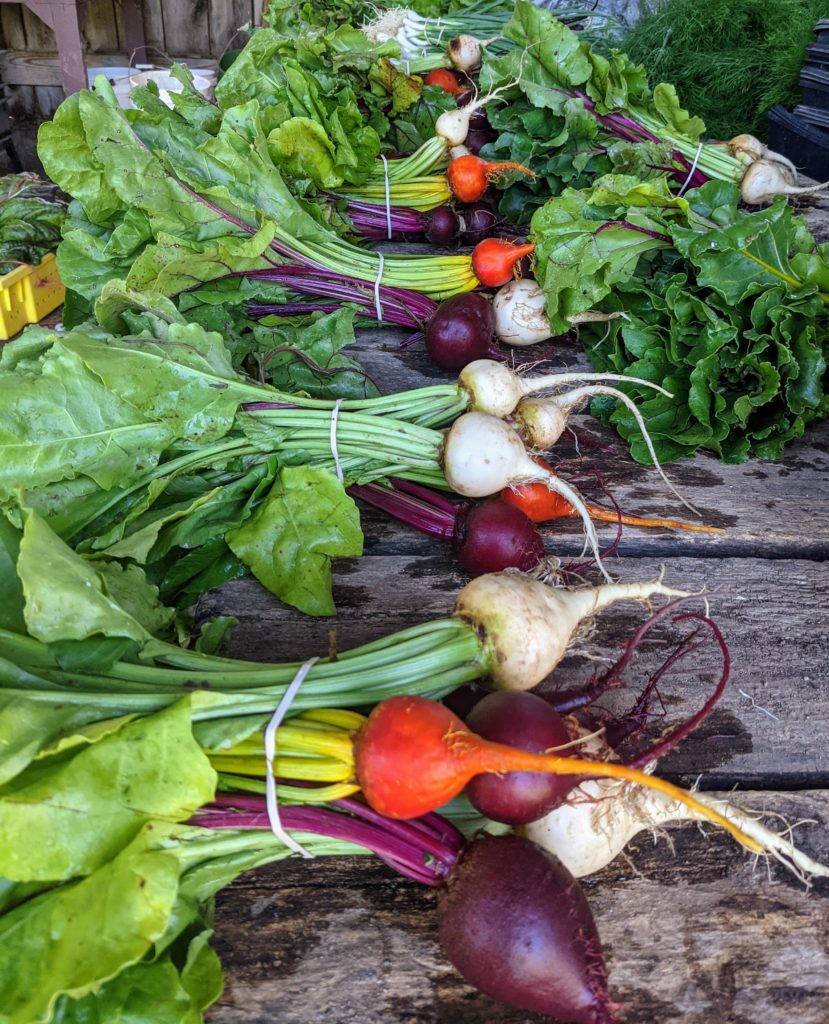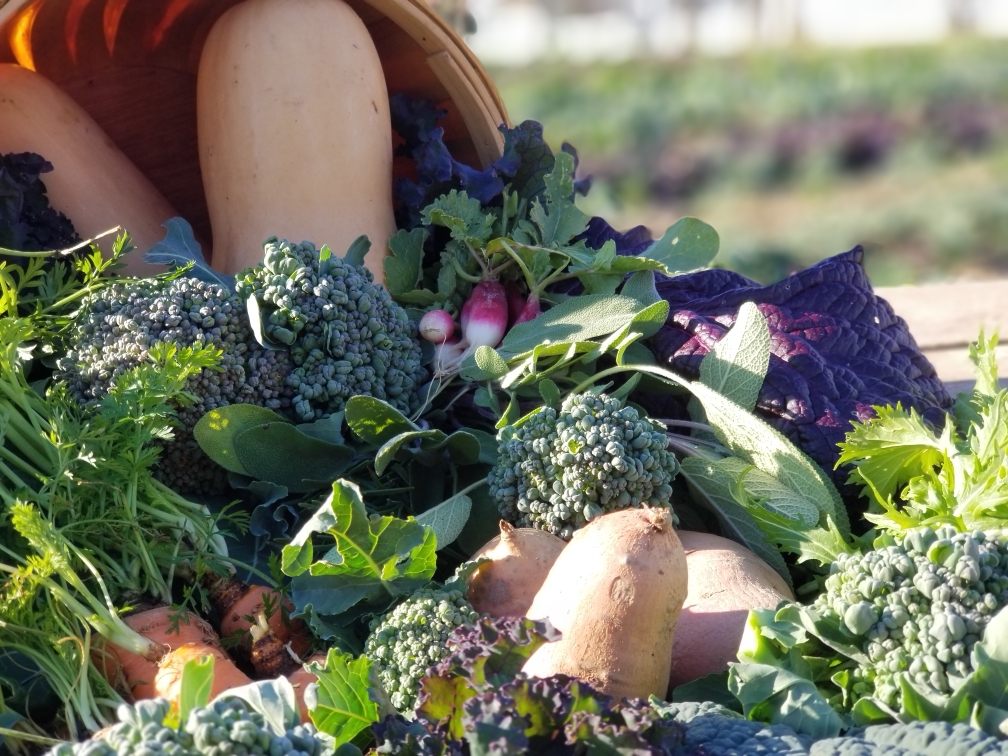Kitty Durham, Garden Supervisor
Spring has officially sprung! Sunday, March 20th marked the Vernal Equinox, the first day of astronomical Spring in the Northern Hemisphere. There is an equal amount of daytime and nighttime hours now, and we will continue to gain a bit more daylight every day until the Summer Solstice. We may still see some cold temperatures, as our official last frost date is still a few weeks away, but the farm is waking up from its winter hibernation and preparing to launch another year of Community Supported Agriculture shares.
While not as adorable as the baby lambs that are being born daily at our farm, we have a plethora of baby plants to care for as well! We begin planting our seedlings in the greenhouse in February to ensure we have sturdy healthy plants ready to go into the ground by April. This year we have around 9,000 seedlings started in our greenhouse. These include our cool season spring starts such as brassicas, and some slow growing summer favorites like peppers and tomatoes. We also have flowers for our upcoming Chamber Music Festival, and hanging baskets filled with edibles which we will soon be offering to our guests. Even the plants that were directly sown into the garden are starting to sprout as we head into another productive season.

Last year we began offering Community Supported Agriculture (CSA) pickups. A CSA model allows consumers to purchase a “share” of the upcoming year’s crops. A lump sum payment at the beginning of the season will entitle a customer to a weekly portion of the garden harvest. With small farms on the brink of extinction in the shadow of huge industrial scale farms, and consumers becoming more aware of how unhealthy some agricultural practices can be the CSA model offers a return to wholeness, health and economic viability.
A History of Sharing
CSAs first began to sprout up across the globe as early as the 1960s. In Alabama regenerative agriculture pioneer Dr. Booker T. Whatley popularized the concept of “Clientele Membership Clubs” for small farmers which entailed customers paying up front for a season of food as a way of guaranteeing business. Not only did Dr. Whatley advocate for environmentally sound agriculture and economic equality but he was also pivotal in championing African American Farmers following the civil rights movement.
CSAs offer benefits to the consumer and the farmer in a multitude of ways:
- They encourage consumers to eat seasonally.
- Eating locally grown produce reduces carbon emissions resulting from importing foods from other regions.
- Customers gain agency in choosing their food and how it is produced.
- Consumers get the option to support farmers who use methods they embrace for both the environment and the health of the harvest they bring home.
- They foster a relationship with the grower and transparency into the processes used on the farm allowing consumers to see exactly how and where their food is grown.
- Investing in a local farm supports the local economy keeping revenue within your hometown.
- By removing brokers involved in distribution the farmer is able to be fairly compensated. The payment schedule provides a portion of the farm’s operating budget pre-harvest when funds are needed most for seeds and equipment.

In 2001, George Pilley of the Soil Association did a feasibility study that concluded that CSAs have many benefits for both farmers and consumers. He said, “Consumers have access to fresh food from an accountable source with an opportunity to reconnect with the land and influence the landscape they live in. CSAs deliver environmental benefits of few food miles, less packaging and ecologically sensitive farming, and see the return of local distinctiveness and regional food production with higher employment, more local processing, local consumption and circulation of money in the community enhancing local economies.”
Summer & Fall CSAs at The Village
Here at the Shaker Village Farm we will be offering a summer and fall CSA. Each season runs for ten weeks at a cost of $300 per share. That breaks down to just $30 per week! Shares will be sized to support approximately two people with produce for the week.

Each week our shareholders will receive a box with a variety of produce filled with whatever is ripening in the garden. Shareholders will also receive a weekly newsletter with information on farm happenings, tips on storage and recipes. Shares will be picked up on Fridays at the Shaker Village Welcome Center. You can sign up to become a shareholder now. We hope you will partner with us to share in our bounty!